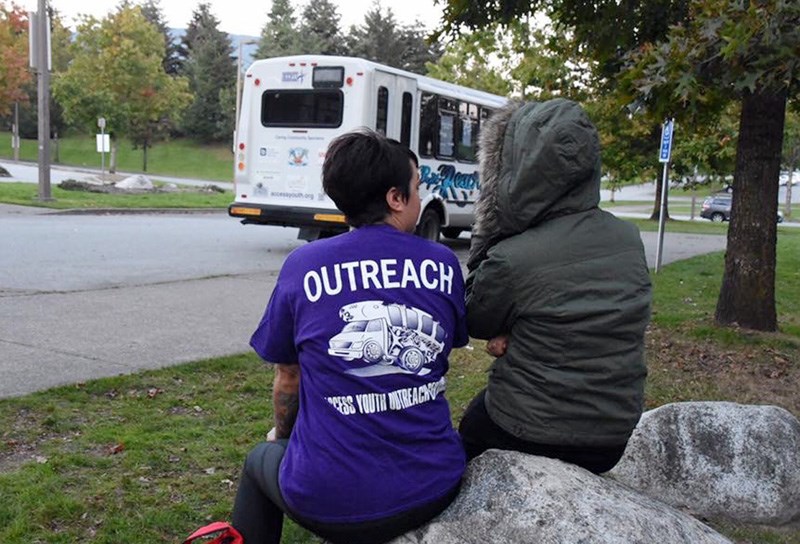Programs for at-risk youth in the Tri-Cities are shutting down because of COVID-19 while youth workers are facing overload as anxious kids are calling in about their worries.
Hundreds of teens who would normally congregate in Coquitlam, Port Coquitlam and Port Moody parks or convenience store parking lots, or who are in at-risk situations are having to fend for themselves as huge swaths of society shut down to stall the spread of the novel coronavirus.
And that worries Vishad Deeplaul, community liaison for Access Youth Outreach Services, one of the Tri-Cities’ longest-running youth advocacy organizations.
See below for a link to a program that helps youth, adults deal with anxiety
“Imagine if you’re somebody who has anxiety, how much more amplified this is for them,” Vishad told The Tri-City News this week.
Normally, on Friday or Saturday nights, youth hanging out at Coquitlam Centre mall, city recreation centres or parks would be able to get snacks, referrals to resources or meet with a youth engagement worker or volunteer for a comforting chat.
But because of COVID-19 and physical distancing guidelines, the mall program, and the organization’s iconic outreach bus, which has been a staple service for Tri-City youth since 2004, have suspended service.
“A lot of people look for us because we are a safe haven, a friend, a companion in a world where youth can get forgotten,” Deeplaul said.
And the service cuts come as Access Youth was just beginning to expand, with support from programs such as the United Way’s Hi Neighbour program, which sponsored the bus on Saturday nights so it could add Burke Mountain to the roster of stops.
As well, just getting started this winter was a gourmet food class that was teaching teens how to cook, supported by the Port Coquitlam Foundation and the city; it has been cancelled, even though it had started attracting more teens.
COVID-19-related issues have spread to the non-profit group itself — five staff have had to be laid off while remaining staff field are fielding calls from youth who need help, including a youth worker, who Deeplaul says, is being inundated with calls.
But there is only so much the organization can do, especially when it’s face-to-face interactions that the youth are calling for, just someone to talk to or a place to hang out.
“If we could, we’d hire another youth worker but we don’t have the funding,” Deeplaul said.
Despite these challenges, Access Youth is still able to help those who are feeling anxious.
Through a partnership with Anxiety Canada, Access has some helpful resources, including an app called Mindshift, based on cognitive behavioural therapy, which helps youth and adults learn about anxiety and develop strategies for dealing with it.
“We are guiding them to Mindshift, so at the moment we are trying to be that connector,” Deeplaul said.
For more information about Anxiety Canada and MindShift, visit anxietycanada.com.



